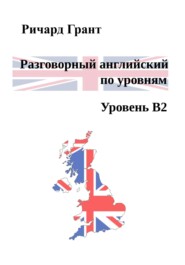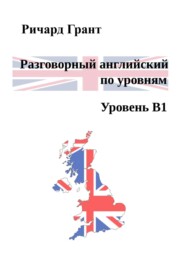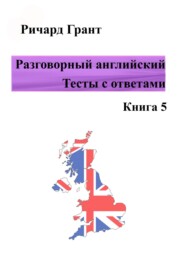По всем вопросам обращайтесь на: info@litportal.ru
(©) 2003-2025.
✖
Английский язык. Теория и практика. Условное наклонение
Настройки чтения
Размер шрифта
Высота строк
Поля
If we had set off earlier, we wouldn’t have missed the train to Morocco. – Еслибымывыехалираньше, мыбынеопоздалинапоезддоМарокко. (мы не выехали раньше и пропустили свой поезд)
Внимание!
В основной части условного предложения третьего типа вместо would можно использовать модальный глагол could или might.
Sam might have told you the truth if you had invited him to the party. – Сэм возможно сказал бы тебе правду, если бы ты пригласил его на вечеринку. (ты не пригласил его на вечеринку и не услышал правды)
– Смешанный тип (mixed conditional) – это предложения в которых основная часть предложения относится к одному типу, а условная – к другому.
Структура условных предложений смешанного типа
Условная часть предложения (second type) – Основная часть предложения (third type)
If + Past Simple – would have + 3-я форма глагола
Условная часть предложения (third type) – Основная часть предложения (second type)
If + Past Perfect – would + смысловой глагол без частицы to
She would have met lots of new friends in the summer camp if she were a little friendlier. – Она бы завела много новых друзей в летнем лагере, если бы была немного дружелюбнее. (но она так ни с кем и не познакомилась, потому что не особо дружелюбная)
We would eat some really nice turkey now if my sister hadn’t forgotten to buy it in the supermarket. – Мы могли бы сейчас есть очень вкусную индейку, если бы моя сестра не забыла купить ее в магазине. (но мы сейчас не едим индейку, потому что в прошлом сестра ее не купила)
Внимание!
Вместо would можно использовать модальный глагол could или might.
If you were taller, you could have tried to participate in that basketball game. – Если бы ты был выше, ты бы мог попытаться принять участие в той баскетбольной игре. (но ты не настолько высокий, чтобы иметь возможность это сделать)
If he had invested his money into bitcoins a few years ago, he could be a very rich man now. – Если бы он вложил деньги в биткоины несколько лет назад, сейчас он мог бы быть очень богатым человеком. (но он не вложил деньги в прошлом и поэтому сейчас небогат)
Упражнения
Упражнение 1
Раскройте скобки, используя глагол в нужной форме.
If he (come) tomorrow, he will help us. – If he comes tomorrow, he will help us.
If he (come) tomorrow, he would help us. – If he came tomorrow, he would help us.
If he (come) yesterday, he would have helped us. – If he had come yesterday, he would have helped us.
1. If it (to rain) tomorrow, our game will be cancelled. 2. If you (put) salt on ice, it will melt. 3. If you met the president, what you (do)? 4. She (notice) this mistake if she had been more attentive. 5. If he (book) tickets yesterday, he (lie) on the beach now. 6. If he were not such an outstanding actor, he (not to have) so many admirers. 7. If you (not to buy) coffee, we will drink tea. 8. If my brother (to be) in trouble, I will help him, of course. 9. If it (to snow), the children will play snowballs. 10. If she (to ask) me yesterday, I would certainly have told her all about it. 11. If you were on a hijacked plane you (to attack) the hijackers? 12. I am sorry that you do not read English novels; if you (to read) them, I (to lend) you some very interesting ones. 13. If he (leave) now, he will miss the rush hour. 14. If he (live) nearer, we would see each other more often. 15. I might have gone on an excursion with you if I (know) about it beforehand.
Упражнение 2
Раскройте скобки, используя глагол в нужной форме.
1. She (not forgive) him if she (not be) his mother. 2. If you (to give) me your address, I will write you a letter. 3. If he is free tomorrow, he certainly (to come) to our party. 4. If I don’t manage to finish my report today, I (to stay) at home tomorrow. 5. If I (not to know) English, I would not be able to enjoy Byron’s poetry. 6. If you (to do) your morning exercises every day, your health would be much better. 7. If a dog (to bite) her on the leg, she would go straight to hospital. 8. If they were on a hijacked plane, they (to stay) calm and probably (to survive). 9. You say that you did not read yesterday’s papers; if you (to read) them, you (to see) the announcement of Professor X’s coming to our town. 10. Provided that she (service) the car, we'll be able to drive to the country. 11. I might go for a walk if the weather (be) nice. 12. If we (know) that you were there, we would have called on you. 13. If you (drink) less last night, you (not feel) so bad today. 14. If she (not to be) so absent-minded, she would be a much better student. 15. My brother would not have missed so many lessons if he (not to hurt) his leg.
Упражнение 3
Раскройте скобки, используя глагол в нужной форме.
1. If she were more careful about her diet, she (not to be) so stout. 2. I (not to do) it if you did not ask me. 3. If he is not very busy, he (to agree) to go to the museum with us. 4. If he had known it was going to rain, he (to take) his umbrella to work today. 5. If my friend had been trying harder, he (to succeed). 6. He is not ill: if he (to be) ill, he (not to play) tennis so much. 7. Unless he (do) his homework, he'll stay at home. 8. I would call him up if he (come) tomorrow. 9. If I had known of his arrival, I (meet) him. 10. If he (be) cleverer, he (not behaved) so foolishly yesterday. 11. If my sister does not go to the south, we (to spend) the summer in Toronto together. 12. If my friend (to work) in my office, we would meet every day. 13. You would not feel so bad if you (not to smoke) too much. 14. If men (to have) no weapons, would wars be possible? 15. If I (not to be) present at the lesson, I would not have understood this difficult rule.
Упражнение 4
Раскройте скобки, используя глагол в нужной форме.
1. If only I (to have) more pocket money, I could buy some new English books. 2. If I (to live) in 1703, I wouldn’t have had a computer. 3. He was not ill last week: if he (to be) ill, he (not to take) part in the football match. 4. Providing that we (get up) early, we'll reach the place of destination in time. 5. If I were as young as you are, I (sail) in a boat round the world. 6. Nobody told me about your trouble. I would have helped you if I (know) about it. 7. If I (know) English well, I (translate) the article long ago. 8. If they (not to go) to Toronto last year, they would not have heard that famous musician. 9. If you spoke English every day, you (to improve) your language skills. 10. If he (to learn) the poem, he would not have got a bad mark. 11. You will never finish your work if you (to waste) your time like that. 12. If he reads fifty pages every day, his vocabulary (to increase) greatly. 13. If she hadn’t missed the bus, she (not to be) late for work. 14. If she (to smell) smoke in the middle of the night, she would telephone the fire brigade and run into the street and shout, “Fire!” 15. How slippery it is! If it (not to rain
Внимание!
В основной части условного предложения третьего типа вместо would можно использовать модальный глагол could или might.
Sam might have told you the truth if you had invited him to the party. – Сэм возможно сказал бы тебе правду, если бы ты пригласил его на вечеринку. (ты не пригласил его на вечеринку и не услышал правды)
– Смешанный тип (mixed conditional) – это предложения в которых основная часть предложения относится к одному типу, а условная – к другому.
Структура условных предложений смешанного типа
Условная часть предложения (second type) – Основная часть предложения (third type)
If + Past Simple – would have + 3-я форма глагола
Условная часть предложения (third type) – Основная часть предложения (second type)
If + Past Perfect – would + смысловой глагол без частицы to
She would have met lots of new friends in the summer camp if she were a little friendlier. – Она бы завела много новых друзей в летнем лагере, если бы была немного дружелюбнее. (но она так ни с кем и не познакомилась, потому что не особо дружелюбная)
We would eat some really nice turkey now if my sister hadn’t forgotten to buy it in the supermarket. – Мы могли бы сейчас есть очень вкусную индейку, если бы моя сестра не забыла купить ее в магазине. (но мы сейчас не едим индейку, потому что в прошлом сестра ее не купила)
Внимание!
Вместо would можно использовать модальный глагол could или might.
If you were taller, you could have tried to participate in that basketball game. – Если бы ты был выше, ты бы мог попытаться принять участие в той баскетбольной игре. (но ты не настолько высокий, чтобы иметь возможность это сделать)
If he had invested his money into bitcoins a few years ago, he could be a very rich man now. – Если бы он вложил деньги в биткоины несколько лет назад, сейчас он мог бы быть очень богатым человеком. (но он не вложил деньги в прошлом и поэтому сейчас небогат)
Упражнения
Упражнение 1
Раскройте скобки, используя глагол в нужной форме.
If he (come) tomorrow, he will help us. – If he comes tomorrow, he will help us.
If he (come) tomorrow, he would help us. – If he came tomorrow, he would help us.
If he (come) yesterday, he would have helped us. – If he had come yesterday, he would have helped us.
1. If it (to rain) tomorrow, our game will be cancelled. 2. If you (put) salt on ice, it will melt. 3. If you met the president, what you (do)? 4. She (notice) this mistake if she had been more attentive. 5. If he (book) tickets yesterday, he (lie) on the beach now. 6. If he were not such an outstanding actor, he (not to have) so many admirers. 7. If you (not to buy) coffee, we will drink tea. 8. If my brother (to be) in trouble, I will help him, of course. 9. If it (to snow), the children will play snowballs. 10. If she (to ask) me yesterday, I would certainly have told her all about it. 11. If you were on a hijacked plane you (to attack) the hijackers? 12. I am sorry that you do not read English novels; if you (to read) them, I (to lend) you some very interesting ones. 13. If he (leave) now, he will miss the rush hour. 14. If he (live) nearer, we would see each other more often. 15. I might have gone on an excursion with you if I (know) about it beforehand.
Упражнение 2
Раскройте скобки, используя глагол в нужной форме.
1. She (not forgive) him if she (not be) his mother. 2. If you (to give) me your address, I will write you a letter. 3. If he is free tomorrow, he certainly (to come) to our party. 4. If I don’t manage to finish my report today, I (to stay) at home tomorrow. 5. If I (not to know) English, I would not be able to enjoy Byron’s poetry. 6. If you (to do) your morning exercises every day, your health would be much better. 7. If a dog (to bite) her on the leg, she would go straight to hospital. 8. If they were on a hijacked plane, they (to stay) calm and probably (to survive). 9. You say that you did not read yesterday’s papers; if you (to read) them, you (to see) the announcement of Professor X’s coming to our town. 10. Provided that she (service) the car, we'll be able to drive to the country. 11. I might go for a walk if the weather (be) nice. 12. If we (know) that you were there, we would have called on you. 13. If you (drink) less last night, you (not feel) so bad today. 14. If she (not to be) so absent-minded, she would be a much better student. 15. My brother would not have missed so many lessons if he (not to hurt) his leg.
Упражнение 3
Раскройте скобки, используя глагол в нужной форме.
1. If she were more careful about her diet, she (not to be) so stout. 2. I (not to do) it if you did not ask me. 3. If he is not very busy, he (to agree) to go to the museum with us. 4. If he had known it was going to rain, he (to take) his umbrella to work today. 5. If my friend had been trying harder, he (to succeed). 6. He is not ill: if he (to be) ill, he (not to play) tennis so much. 7. Unless he (do) his homework, he'll stay at home. 8. I would call him up if he (come) tomorrow. 9. If I had known of his arrival, I (meet) him. 10. If he (be) cleverer, he (not behaved) so foolishly yesterday. 11. If my sister does not go to the south, we (to spend) the summer in Toronto together. 12. If my friend (to work) in my office, we would meet every day. 13. You would not feel so bad if you (not to smoke) too much. 14. If men (to have) no weapons, would wars be possible? 15. If I (not to be) present at the lesson, I would not have understood this difficult rule.
Упражнение 4
Раскройте скобки, используя глагол в нужной форме.
1. If only I (to have) more pocket money, I could buy some new English books. 2. If I (to live) in 1703, I wouldn’t have had a computer. 3. He was not ill last week: if he (to be) ill, he (not to take) part in the football match. 4. Providing that we (get up) early, we'll reach the place of destination in time. 5. If I were as young as you are, I (sail) in a boat round the world. 6. Nobody told me about your trouble. I would have helped you if I (know) about it. 7. If I (know) English well, I (translate) the article long ago. 8. If they (not to go) to Toronto last year, they would not have heard that famous musician. 9. If you spoke English every day, you (to improve) your language skills. 10. If he (to learn) the poem, he would not have got a bad mark. 11. You will never finish your work if you (to waste) your time like that. 12. If he reads fifty pages every day, his vocabulary (to increase) greatly. 13. If she hadn’t missed the bus, she (not to be) late for work. 14. If she (to smell) smoke in the middle of the night, she would telephone the fire brigade and run into the street and shout, “Fire!” 15. How slippery it is! If it (not to rain
Вы ознакомились с фрагментом книги.
Приобретайте полный текст книги у нашего партнера:
Приобретайте полный текст книги у нашего партнера:











